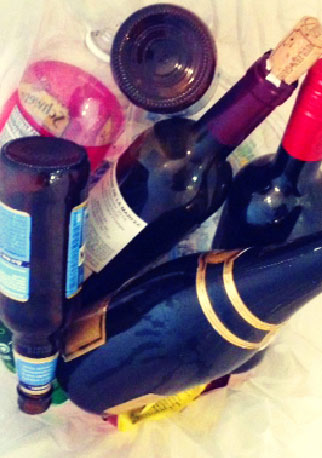
A drinking problem can creep up, particularly if you’re at college and surrounded by alcohol and alcohol-fueled events. Where is the line between experimenting and developing a problem over the long term? How can students be healthier and more aware in general for themselves and their friends?
These are issues Dr. Mia Finkelston, who treats patients using LiveHealth Online, addresses in her practice and among the young people she knows well. Dr. Mia is the mother of college-age children and also coaches girls field hockey in her hometown. She sees firsthand what young people are facing and how alcohol abuse can put students at risk for date rape, impaired driving and blackouts.
What are some of the early developing signs of a drinking problem? Here’s a list from Dr. Mia.
1. Finding yourself looking forward to getting drunk or wondering when you can get drunk again.
2. Basing social activities on whether or not there will be alcohol available.
3. Not being comfortable with friends who don’t drink. Actively choosing friends who do.
4. Calorie counting with alcohol. Not eating in order to drink. (This is more common with young women.)
5. Doing shots or drinking before going out.
6. Experimenting with ways to get drunk quicker.
7. Convincing yourself that because you only drink wine or beer that you could never have a problem.
8. Wanting to say no to having a drink, but saying yes instead.
9. Drinking on multiple nights of the week. (Many colleges have pub nights on Thursdays or Tuesday specials and drinking is a tradition at these events.)
10. Finding yourself in places and situations when drinking that upon reflection might not be so safe.
11. Having to apologize to people the next day for your behavior on the previous night.
12. Making a tradition out of attempting to recount with friends what actually happened the night before.
13. Consistently blaming alcohol for your choices.
If you have a question about alcohol or drugs, you can ask a doctor 24/7 at www.livehealthonline.com or download our app available at Google Play or the App Store.
Comments and opinions from Dr. Mia are hers alone. This is an essay and is not considered medical treatment.
Recommended Posts


